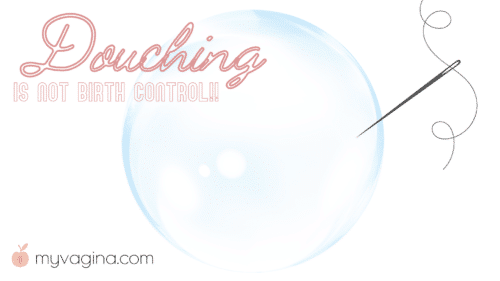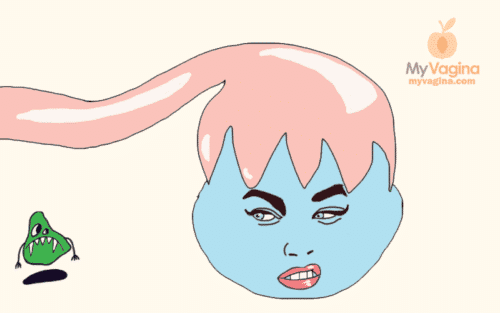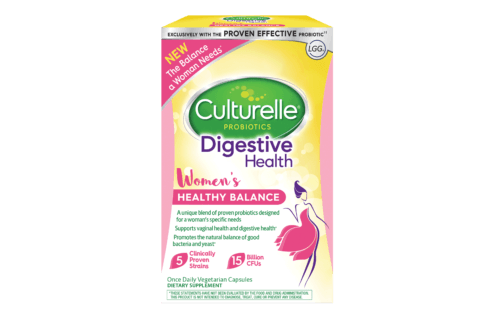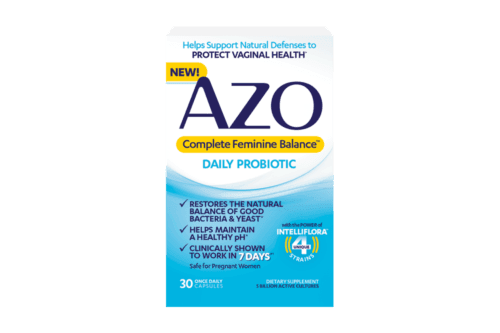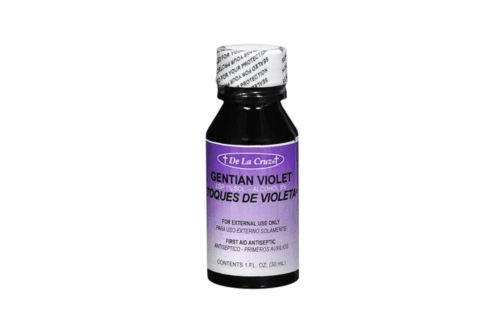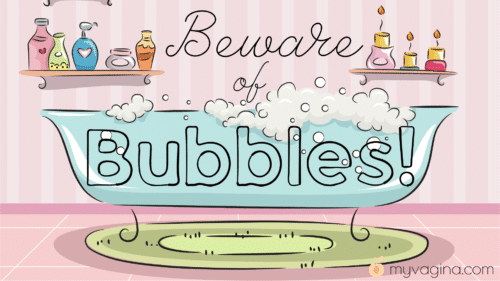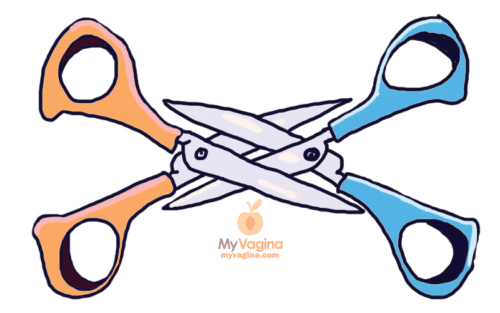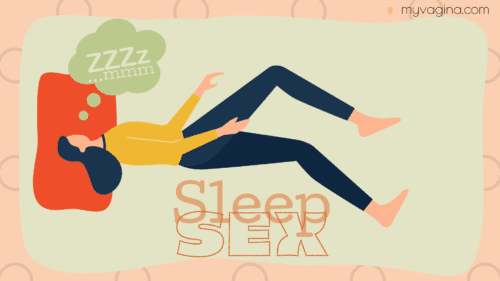Douching as a form of birth control
Douching used to be one of our only options for birth control, however we know now that douching does more damage than good. And it doesn't prevent pregnancy.
BV and ovarian cancer – is there a link?
Can an unhealthy vaginal microbiome contribute to or cause ovarian cancer? Researchers look into it.
Review: Culturelle Women’s Healthy Balance
This probiotic has some of the very best vaginal colonisers and can be used, with a capsule switch to veggie, vaginally.
Review: AZO Complete Feminine Balance Daily Probiotic
This product contains the best vaginal colonisers and warriors, and when the capsules are switched to vegetable at home, is a great vaginal probiotic.
Gentian violet health warning – use at your own risk!
The Canadian Government has banned all products containing gentian violet for humans and animals due to ingestion/absorption health concerns.
The role of vitamin A in the vagina and urinary tract
Here we discuss the importance of vitamin A in the mucosal surfaces of the reproductive and urinary tract.
Ingredients to keep away from your vag – bubble bath, here’s looking at you!
Check the ingredients on everything you put near your vuvla, particularly in the shower or bath. You can be irritating your delicate tissue without knowing.
Gelatin or vegetable capsules for vaginal use?
We did an experiment to show the difference between vegetable capsules and gelatin capsules for vaginal treatments
Rotterdam criteria for diagnosing PCOS
The Rotterdam criteria is how PCOS is diagnosed, with the criterium being updated as new research and clinical experience comes to light.
Why E. coli and E. faecalis are often found together in infections
E. coli gets a boost from E. faecalis, which may help explain why these two pathogenic pests are often found together in infections.
Why dipsticks and cultures are useless for identifying urinary tract infections
The typical way a doctor will test for a UTI may be on the way out, as research shows that dipsticks and usual cultures are falling short on diagnosing UTI.
Why you get a keep getting a UTI after sex
Getting a UTI every time you have sex is demoralising and bad for your happiness, but there is a specific reason this keeps happening.
Is it safe to put food in your vagina?
We run you through some food-safety tips when considering using foods vaginally - what you can get away with and what you should definitely avoid.
PrEP is not just for gay men – it’s for everyone, hetero women included
PrEP, the HIV prevention medication, works just as well for women as gay men, but why aren't women taking it? We discuss.
SSRI antidepressants and pregnancy – is it safe?
We review the evidence regarding SSRI use during pregnancy, and whether it increases the risks of malformations in your baby.
How do lesbians lose their virginity?
When you are still technically a virgin or not is a complicated question based on old ideas of purity. You lose your virginity when you say you do!
Sleep sexing – understanding sexsomnia
Sexsomnia means acting in a sexual manner during sleep, ranging from aggressive sexual advances to moaning. We discuss the consequences of sleep-sexing.
Gestational diabetes – what you should know
We run you through type II diabetes during pregnancy. Gestational diabetes can cause some serious problems for mother and baby, requiring monitoring.
Video: how to put lactulose liquid into size 000 or 00 vegetable capsules
Learn how to fill up your vegie capsules with lactulose liquid, guided by the beautiful hands of our very own PCOS-specialist naturopath, Josephine Cabrall.
Study: men carry BV-associated bacteria on and in their penises
Researchers tested the skin of the penis, urethra, head of the penis and urine and semen samples of the male partners of women with BV - men have it too!


